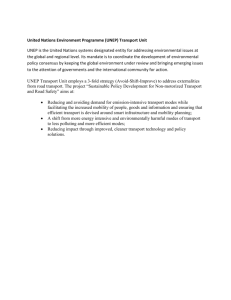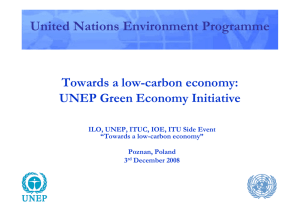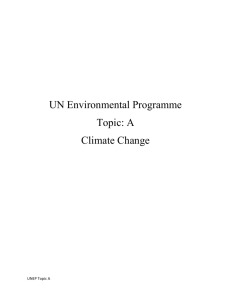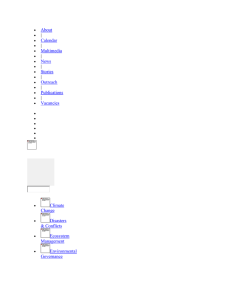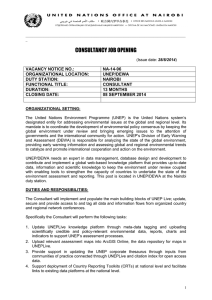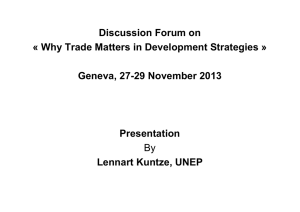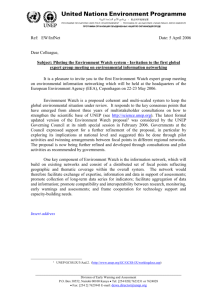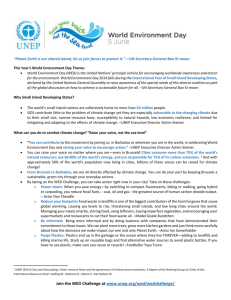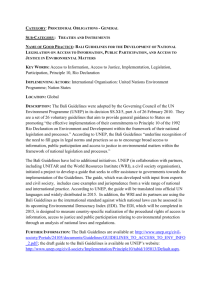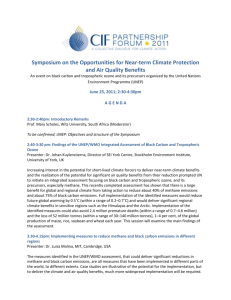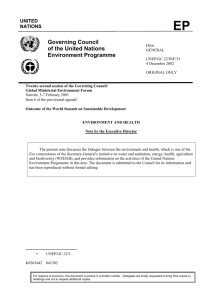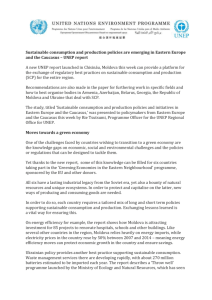13-10-03 UNEP
advertisement
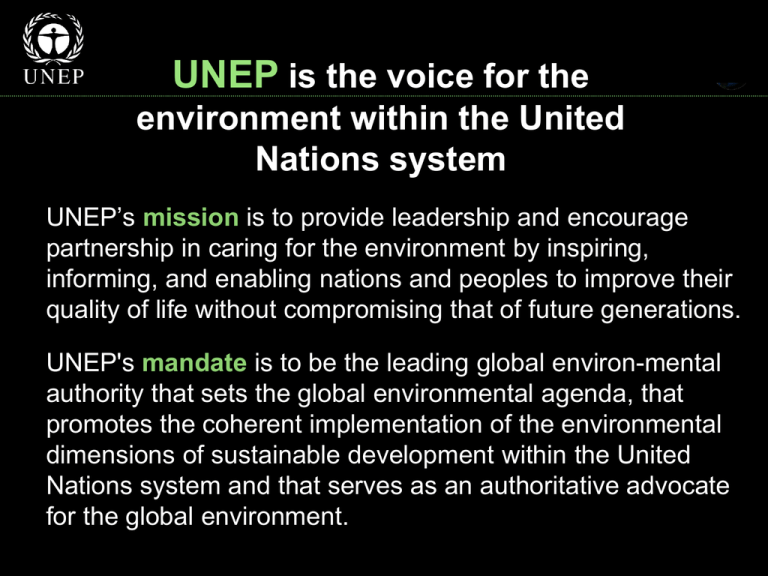
UNEP is the voice for the environment within the United Nations system UNEP’s mission is to provide leadership and encourage partnership in caring for the environment by inspiring, informing, and enabling nations and peoples to improve their quality of life without compromising that of future generations.. UNEP's mandate is to be the leading global environ-mental authority that sets the global environmental agenda, that promotes the coherent implementation of the environmental dimensions of sustainable development within the United Nations system and that serves as an authoritative advocate for the global environment. UNEP around the world UNEP around the world UNEP’s global headquarters are in Nairobi, Kenya. Being based in Africa gives UNEP a first-hand understanding of the environmental issues facing developing countries. UNEP is represented across the globe by six regional offices: • Africa: Nairobi, Kenya • Asia and the Pacific: Bangkok, Thailand • Europe: Geneva, Switzerland • Latin America and the Caribbean: Panama City • North America: Washington DC, USA • West Asia: Manama, Bahrain Plus country offices in Brazil, China, Russia and India and increasing staff in national UN offices UNEP around the world Six strategic priorities: • Climate change • Disasters and conflicts • Ecosystems Management • Environmental governance • Harmful substances • Resource efficiency Budget: 2012/3: US$614 2014/15: US$631 Staffing number: Approx. 850 Implemented in a matrix structure with 6 substantive Divisions: Early Warning and Assessment; Policy Development and Law; Environmental Policy Implementation; Technology, Industry and Economics; Regional Cooperation; Communications and Public Information UNEP in Copenhagen Climate Technology Centre and Network (CTCN) • Established as part of the Technology Mechanism of the UNFCCC • Mission: To stimulate technology cooperation and enhance the development and transfer of technologies to developing countries at their request • Core centre managed by UNEP together with UNIDO, backed by “technical resource pool” of consortium partners and with main support provided through the Network Challenges – an illustration UNEP produced its fifth Global Environment Outlook report prior to Rio+20. The latest edition was welcomed as the definitive report on the state of the environment and an important substantive contribution to the high-level debate in Rio. Of the 90 internationally agreed goals and objectives assessed in GEO-5: • Significant progress in only 4 • Some progress in 40 • Little or no progress in 24 • Further deterioration in 8 • No assessment in 14 due to lack of data
